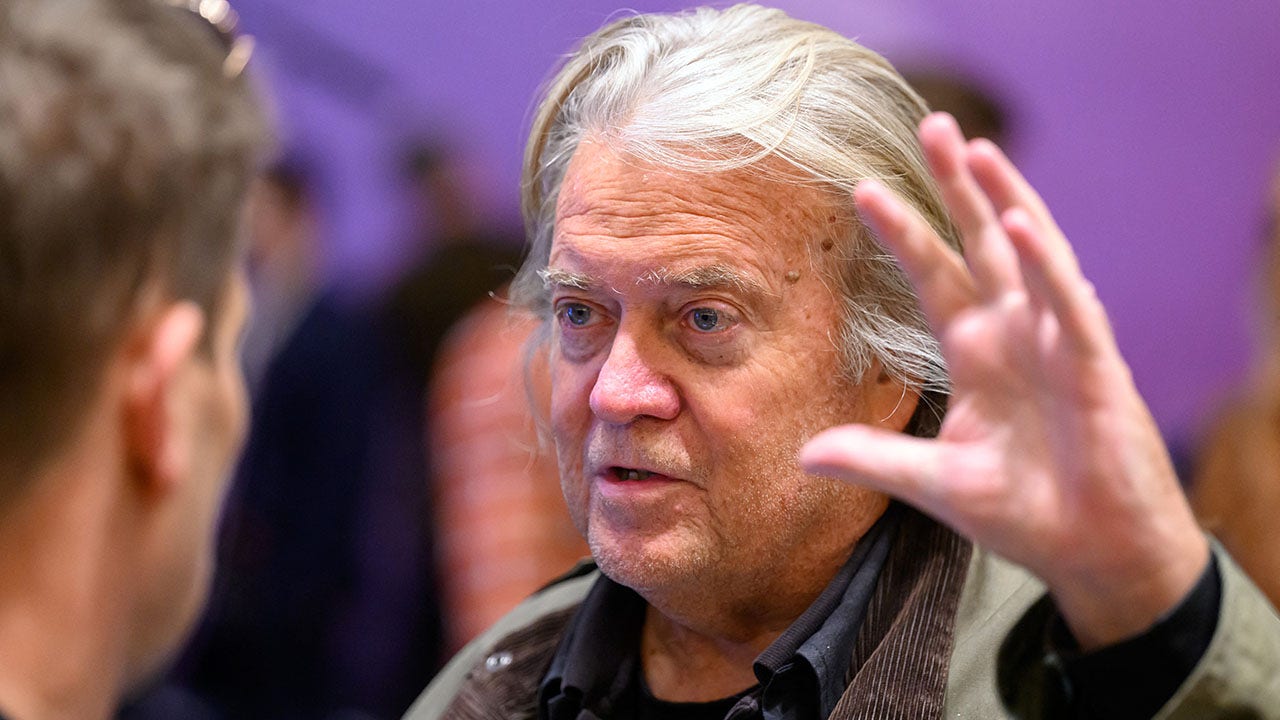Bannon warns Russia-Ukraine war could become ‘Trump’s Vietnam’’

Former White House Chief Strategist Steve Bannon is sounding the alarm on a potential world conflict that he believes could become “Trump’s Vietnam.” Bannon, who currently hosts the radio show and podcast “War Room,” has been using his platform to advocate for President-elect Donald Trump to end the war in Ukraine quickly.
In an interview with Politico, Bannon revealed that he is aggressively pushing for Trump to make an announcement on “Day One” of his presidency that the United States will no longer send military aid to Ukraine. He warned that the U.S. defense industry, European allies, and even some of his own friends are pressuring Trump to continue sending aid to Ukraine, a move that Bannon believes is misguided.
One of the key figures in advocating for continued military aid to Ukraine is Keith Kellogg, a retired U.S. general who Trump has appointed as a special envoy to Ukraine and Russia. Despite their friendship, Bannon believes that Kellogg’s approach is flawed and risks entangling the United States in a war that cannot be won and goes against American national interests.
Bannon emphasized the importance of ending the conflict in Ukraine quickly to prevent it from becoming a prolonged and costly war for the United States. He drew parallels to former President Richard Nixon, who became synonymous with the Vietnam War despite it being initiated by his predecessor, Lyndon Johnson.
The former White House chief strategist urged Trump to send a strong message to Ukrainian President Volodymyr Zelenskyy that the U.S. is committed to brokering a deal swiftly and effectively. Bannon cited Trump’s success in pressuring Israeli Prime Minister Benjamin Netanyahu to accept a cease-fire deal with Hamas as a model for how to handle international negotiations.
Bannon also expressed concerns about NATO, which he believes has become more of an American protectorate than a true alliance. He criticized European countries for not investing enough in their own defense and for failing to see Russia as a real threat.
In addition to his views on Ukraine and NATO, Bannon voiced support for Trump’s proposals to gain control of Greenland and the Panama Canal, which he sees as critical to U.S. national security. He also criticized European leaders, including British Conservative leader Boris Johnson, whom he called a “war criminal,” for their handling of the Ukraine conflict.
Overall, Bannon’s warnings about a potential conflict in Ukraine serve as a stark reminder of the complex geopolitical challenges facing the incoming Trump administration. As Trump prepares to take office, it remains to be seen how he will navigate these issues and whether he will heed Bannon’s advice to end the war in Ukraine swiftly.




